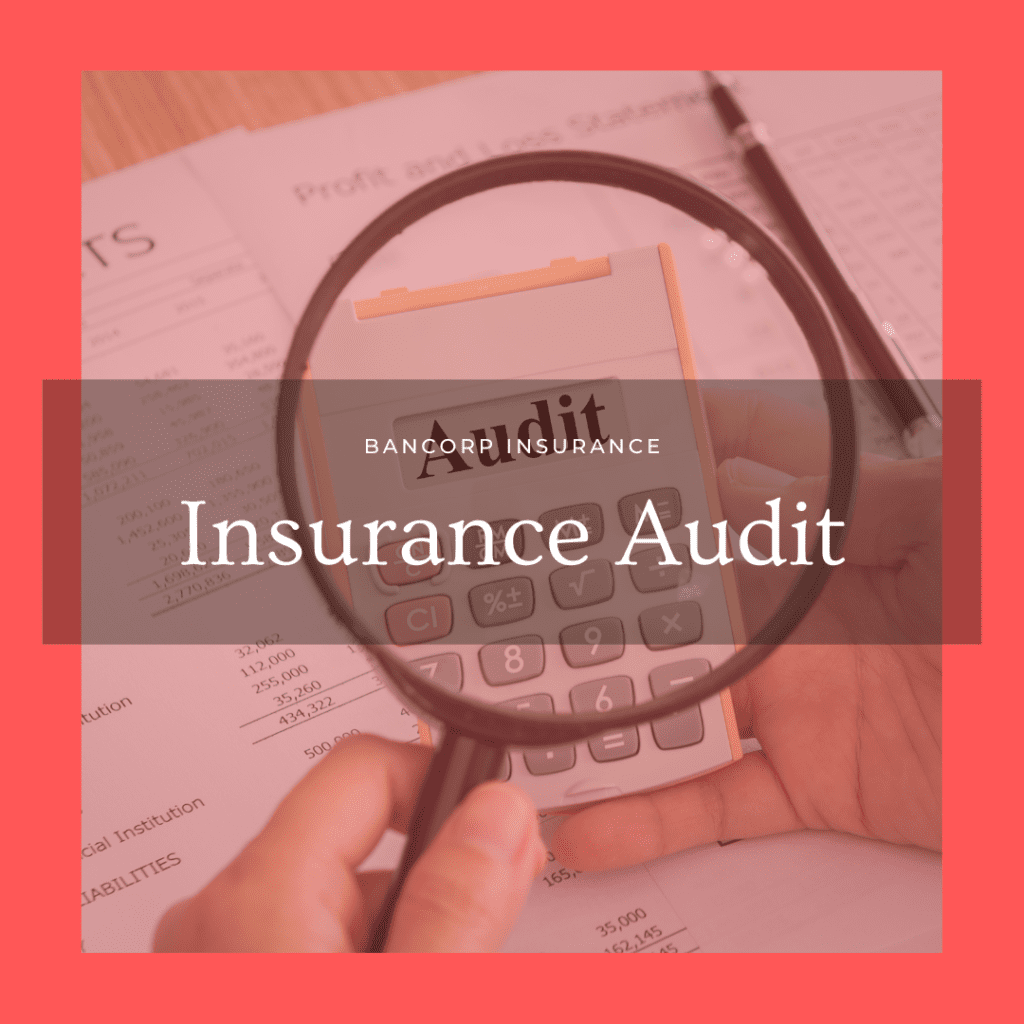Types of Insurance Audits

What is an insurance audit? An insurance audit is an examination of your operations, accounting records, employees and what it is you actually do to discover your risk exposure. This can affect your premium basis, classifications and rates that apply, for a specific period of time coverage was provided.
The most common policies to be audited are the Worker’s Compensation and General Liability policies. These policies are rated on payroll, sub-contractor costs or receipts.
Audits generally take place at the end of the policy period. In short, they look backwards at what was actually spent either on payroll, sub-costs or what the receipts were the prior year.
Hot Tip: Insurance Company’s do not do the audits every year.
If your business has not been audited in the last two years, call our office and ask us to request an insurance audit. Why? The state of the economy could have affected your business financials. If your sub-costs are down, receipts are down, or you have had to lay off employees. You may be due a return insurance premium from the insurance company.
Insurance audits could go two ways: If the business grossed more than was guesstimated when the policy was purchased, this could result in an additional premium being owned. This is due to the fact that the carrier was providing you with more coverage than they were charging you for. But, on the other side of the balance sheet, if the operation has shrunk because of the economic downturn, then the insurance company may owe money back.
What Do You Need to Have Ready for and Insurance Audit?
Make sure to have copies of all sub-contractors current certificates of insurance.
Have accurate figures showing what was paid out in sub-contractor costs.
Updated payrolls figures.
Accurate accounting of all receipts.
This is a good time to pull all this paperwork together, right before tax time. Audit’s do not have to be bad news.
What is a Website Insurance Audit?
A website insurance audit is a routine check of the businesses website that is seeking insurance. The purpose is to evaluate what the business does. They then rate each business using a class code. What does that mean? Good question.
Class codes simply classify the business’s risk via what it is they do. An example, is an excavator who installs septic systems has a much lower class code than an excavator who digs trenches. The lower the class code the lower the insurance rate and potential risk of having a claim!
We frequently get calls after an insurance underwriting website audit, saying “you did not tell me they do this or that”. We always ask where the underwriters information came from to verify its legit, and nine times out of ten it’s from the business’s website. This conversation prompts a to call the client to find out what percentage of the business revenue is actually derived from said activity. Our job is to help protect the business from the unexpected and save the customer money when possible.
Business Website Setup Tips
When setting up a website, pay extra attention to the site wording. This includes the about us page and services offered. Be aware who may be looking at the website: potential customers, but also insurance company underwriters, lawyers, state regulators, vendors, etc.
Websites are the businesses public face online. It should not be static. Update its content as business evolves. Removing or editing services that may have changed over time. In summary, a good rule of thumb is not to put anything on the website that you would not be willing to defend in a court of law.
Is your business insured properly?
Contact Us, We will put together a customized quote to suit your unique needs.
What is underwriting looking for during an insurance audit of my website?
For insurance purposes, it’s a good idea to list only the services that make up the largest part of the most revenue for the business. If it’s a one-off deal that is only done less than 5% of the time, don’t list it. Potential clients can still ask about particular jobs and the business can insure them for the time period that the work is being done. However, it is likely not something that needs to be insured year-round. Just don’t forget to call and get it insured.
Whatever you do don’t assume your current insurance policy will cover the event for something that is not customarily done. All insurance policies are rated and written on the type of activity or service you perform 90% of the time. The other 10% may not be covered under your current policy. It’s best to call the office and ask.
Bancorp’s insurance agents are available to provide you with a free review and consultation. Contact Us – Bancorp Insurance Call 800-452-6826
Disclaimer: This content is provided for general information purposes and is not intended to be used in place of consultation with our agents.



